Let's Talk About Cruising
What is Cruising?
Cruising is defined as the act of searching a locality (cruising space or beat) in search of a sex partner; generally one that is intended to be anonymous, casual, and a one-time encounter.
According to the historian and author Tim Blanning, the term cruising originates from the Dutch word kruisen. Cruising was, and continues to be a code word; the use of the term signals the speakers unstated sexual intent. Only those familiar with the meaning of cruising and what it entails would likely recognize the intention behind the term.
Within Australia, 'beats' are locations frequented by men for the purpose of engaging in sexual acts. Beats are generally spaces like parks, toilets, nightclubs, or car-parks. Because of the often secretive nature of beats, they tend to be frequented by MSM (Men who have Sex with Men), rather than men who identify as gay. Though, because of the fact that sexual categories are flexible, never static, and dependent upon an individual's subjectivity, people of any sexual identity, or sexual preference may also frequent such locations. The majority of MSM who visit these spots may do so in order to protect their privacy; they may not want to be recognized at more public gay venues.
History of Cruising
Unfortunately, historically being gay (or engaging in acts that may be culturally deemed as 'gay') has carried with it stigma, ostracisation, and at times the risk of being subject to violence. Because of this, beats tended to be the only spaces where people could meet up for the purpose of engaging in sexual acts. As Simon Copland says: "in the 60s and 70s, and probably long before, the beat scene exploded with men gathering in parks, toilet blocks, reserves, and any space they could find to get some good sex". An important subculture emerged around beats and this culture continues to be significant today.
The first evidence of a beat is thought to have been in Hyde Park from the 1870s onwards; this means that such locations have existed for an incredibly long time, and have held significance for those who frequent them. Providing spaces where men can explore their sexuality, let off some steam, experience the excitement of an anonymous sexual encounter, or pursue commitment free sex, these locations have and continue to hold different meanings for different people. As the Star Observer states, "people would hang around beats and sort of work themselves out".
These spaces may have been a way to rebel against hetero-normative expectations of monogamy and family, or places to simply chase a blowjob. Whilst beat culture is less prevalent today because of the increased acceptance of the gay community, as well as a rise in technology that allows men to locate sexual partners with ease, such spots are still used, and can be located through apps like Squirt.
Risks Associated with Cruising
Beats carry with them a number of risks.
Engaging in sexual activity within a public locale is against the law in Australia. Historically, police have been known to excessively patrol beats, though the extent to which they still do is not something that we are able to comment on.
Beats have also been spaces where people are subject to homophobic hate crimes. In very rare cases, during the 80s and 90s, a number of beatings & murders have taken place. While such incidents are fringe, and unlikely to occur, if using beats please be mindful of your safety. The current cultural climate has changed dramatically since these times, but unfortunately all societies contain individuals who are hateful, intolerant, and motivated by prejudice.
The other risk is the spread of STI's and STD's. Due to the casual nature of the interactions within these locations, these spaces are often identified as high risk areas for the transmission of STI's and STD's. If you need further information pertaining to your sexual health, please get into contact with ACON Health; a provider of community health, inclusion, and HIV response. You can find them here: https://www.acon.org.au/
Licensed Sex On Premises Venues
Within Australia, SOPV's refer to Sex on Premises Venues. These spaces are commercial venues that exist for the purpose of providing people locations where they can engage in public sex. SOPV's serve as an alternative to public beats (like parks, carparks, bathrooms) and include spaces like gay bathhouses, bookstores, 'backrooms', saunas, and club-style venues. SOPV's are a safe alternative to using public beats, as they are regulated, indoors, and legal, meaning you cannot be prosecuted for using them.
Some SOPV's in NSW operate under ACON's Sex on Premises Venue Code of Practice. Venues that sign up to the Code agree to abide by the principles and standards set out within the formal document.
"Compliance with the Code will ensure that patrons of SOPVs have a right to be treated with respect whole in the venues, to practice safe, consensual sex, and have access to sexual health information".
The minimum standards set out for SOPVs cover things like:
- Condom and lube distribution and access
- Lighting at the venues
- Drug and alcohol awareness and the provision of safe injecting disposal equipment
- Sexual health information and education resources
- Regular cleaning
- Monitoring of the venues compliance with the Code
For other resources, please visit ACON's website.
Sources:
-
https://www.sbs.com.au/topics/pride/agenda/article/2016/10/17/history-and-importance-gay-beats
-
https://www.starobserver.com.au/news/national-news/and-the-beat-goes-on/144906
-
https://en.wikipedia.org/wiki/Gay_beat
-
https://www.acon.org.au/wp-content/uploads/2015/11/Play-Zone_SOPV-code-of-practice_A5-booklet_web.pdf





Leave a comment